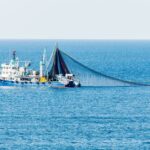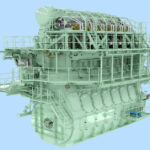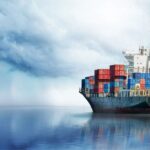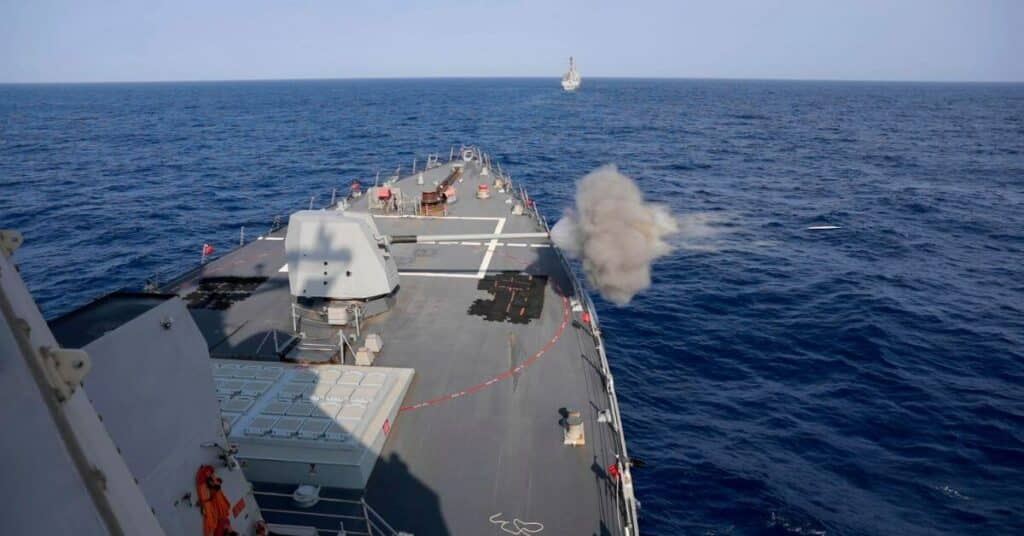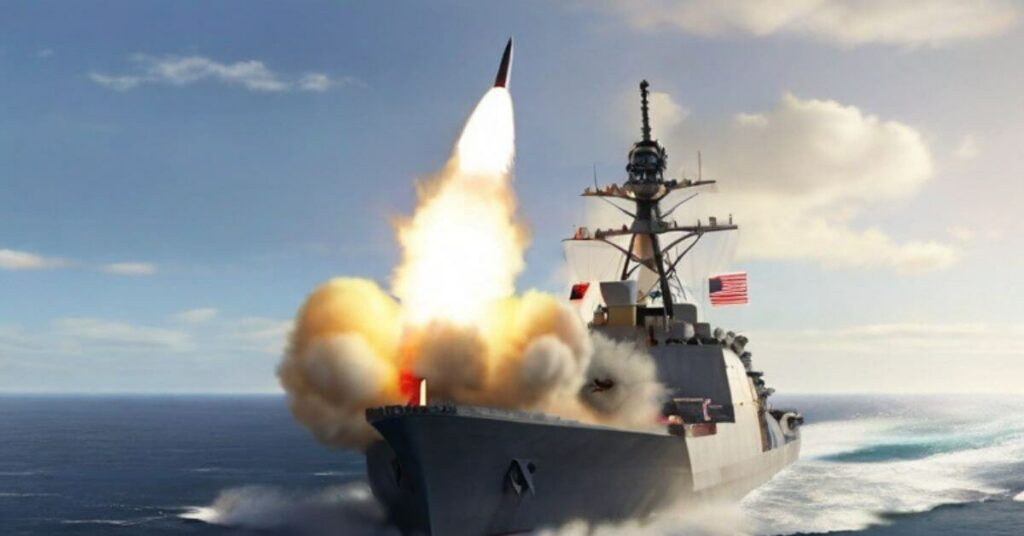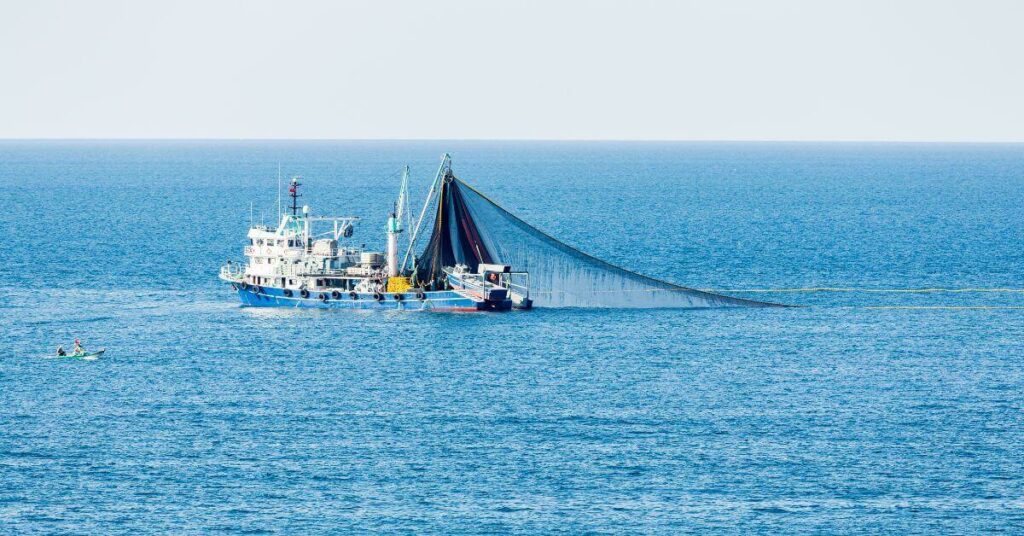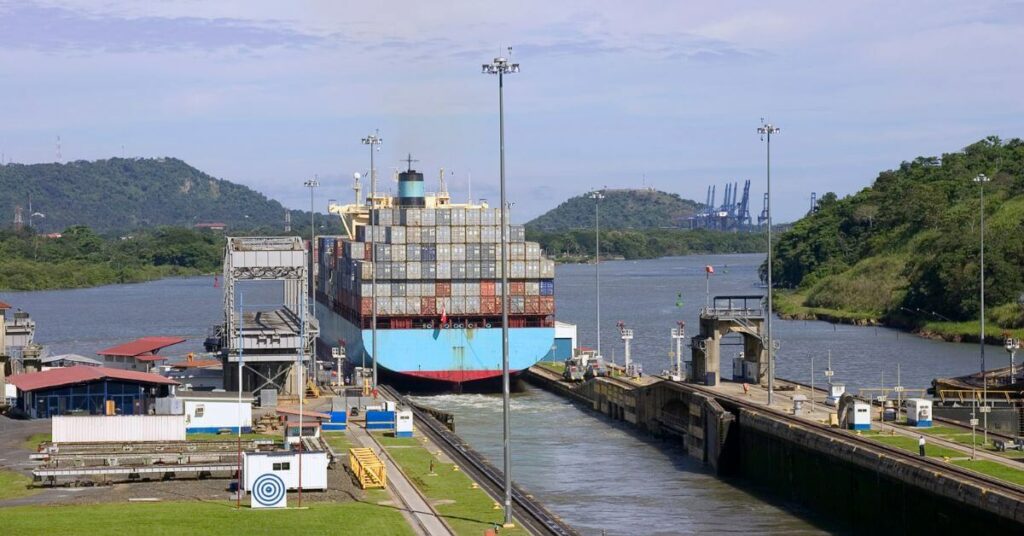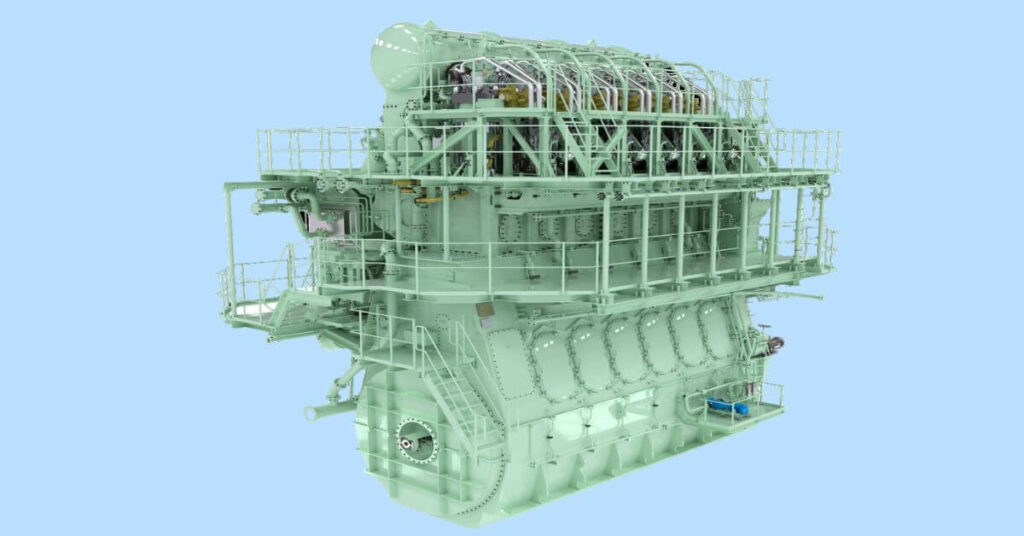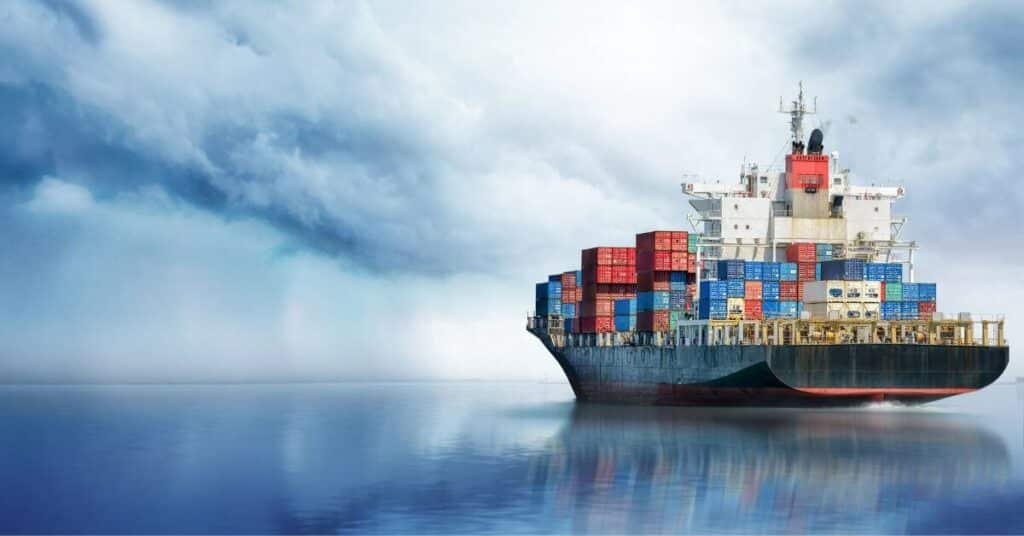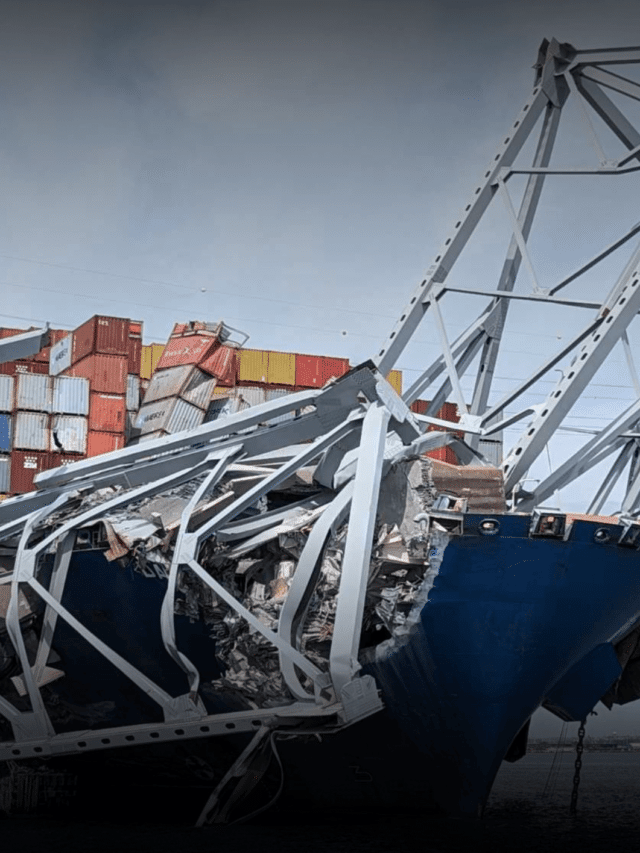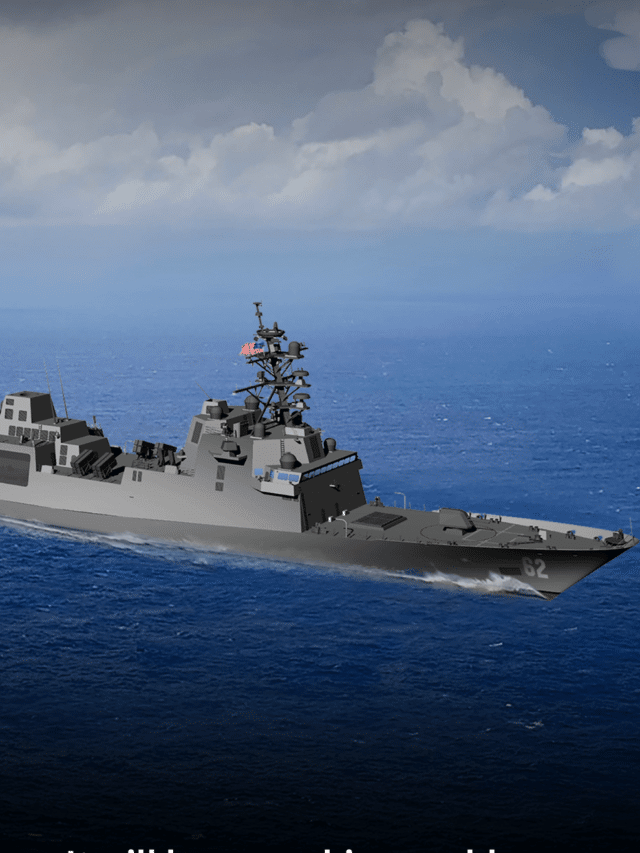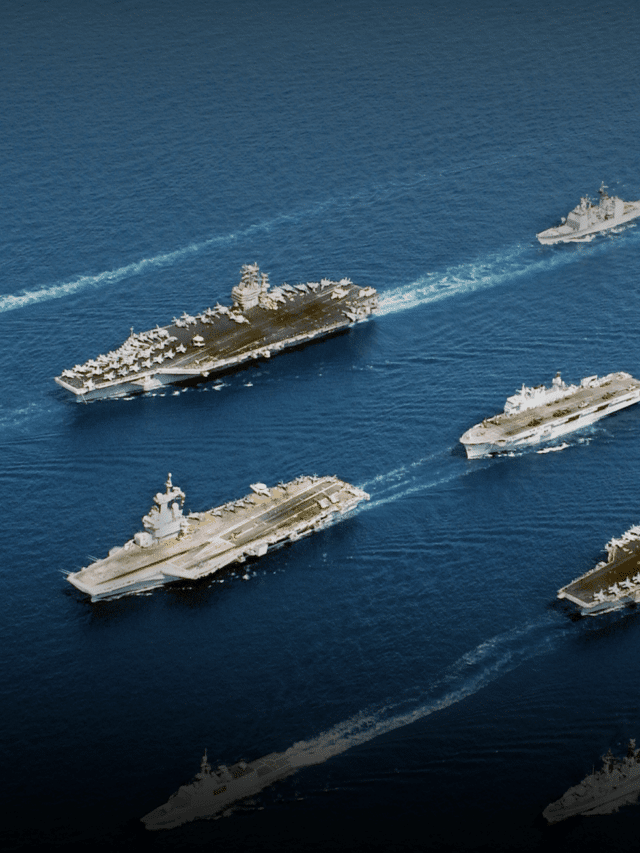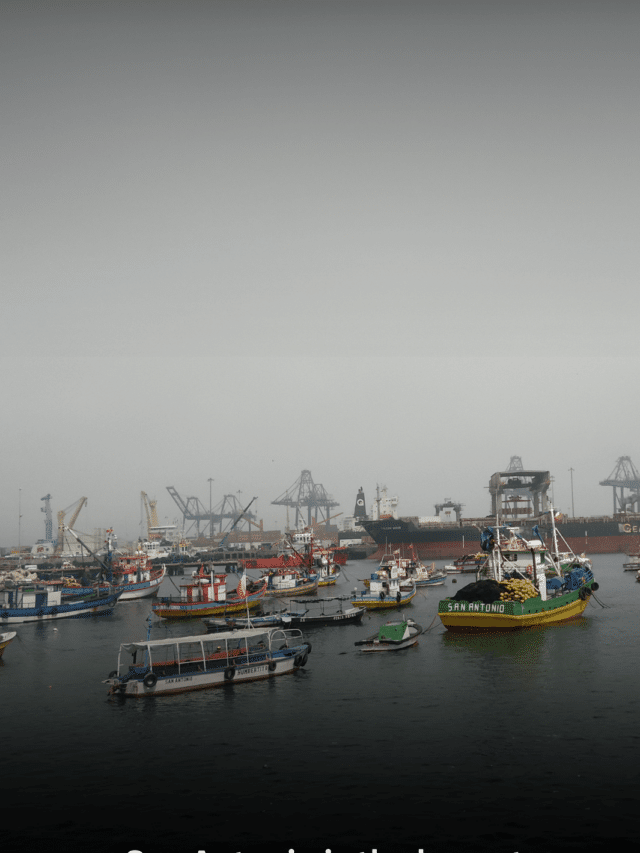World’s First Successful Use Of Synthetic Natural Gas In Commercial Shipping
MAN Energy Solutions reports that the 1,036-TEU container ship, ‘ElbBLUE’ – the former ‘Wes Amelie’ – has reduced its greenhouse gas (GHG) emissions by 27% by operating on a blend of climate-neutral, synthetic natural gas (SNG) and conventional liquefied natural gas (LNG), compared to LNG alone. Compared with heavy fuel oil (HFO), GHG emission reduction was even as high as 34%. The data has emerged from measurements initially carried out on board the ship in September 2021 when the ElbBLUE became the first container ship worldwide to replace a portion of its bunkered gas fuel (around 50%) with SNG.
Dr Uwe Lauber, CEO of MAN Energy Solutions, said: “With this project, we have proven the technical viability of our concept of the maritime energy transition. Today, more than ever, we are convinced that climate-neutral, synthetic fuels point the way to green shipping – and even further beyond.”
Lauber continued: “The current, global, political situation underscores the future role that synthetic fuels can play in a diversified energy supply in that they point the way toward less dependence on raw material deposits, suppliers and price fluctuations. As a result of the military attack on Ukraine in violation of international law, LNG prices, for example, have risen massively in recent weeks and are now at a similar level to SNG. If production capacity can be built up quickly and synthetic fuels made available to the market, SNG could become a climate-friendly and – in the long term – economical alternative to fossil fuels in shipping.”
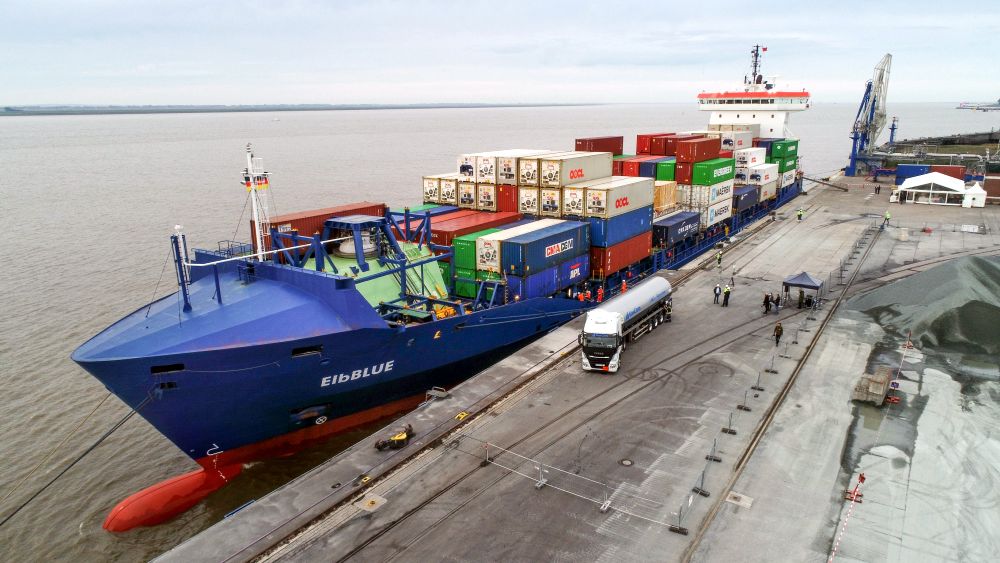
Pure SNG to cut GHG by 80%
Stefan Eefting, Senior Vice President and Head of MAN PrimeServ Augsburg, said: “With this pilot project, we have proven that any LNG-powered ship can also operate with green SNG from power-to-X. Even with a blend of just 50% SNG, GHG and pollutant emissions are significantly reduced. When operated exclusively on SNG, we would expect a reduction of at least 80% in GHG emissions for modern ships.”
Gas operation also drastically reduces other polluting emissions compared to HFO. In the case of the ElbBLUE, nitrogen oxide emissions (NOx) dropped by almost 87%, while emissions of sulphur oxides (SOx) and particulates were almost completely eliminated (~99%). These values were achieved in both the exclusive operation on LNG and on a blend of LNG and SNG.
Measurements were carried out on a voyage between Brunsbüttel, Germany and Rotterdam, the Netherlands with SNG comprising approximately 50% of the bunkered gas at 85% engine load. The ElbBLUE is powered by an MAN 51/60DF four-stroke engine. As a multi-fuel engine, the unit allows operation with either HFO or liquid natural gas (LNG) as fuel. The ship’s test-run proved that the latter can be replaced by SNG without engine modification.
Pioneer
Owned by German shipping company, Elbdeich, and operated by charterer, Unifeeder, the 1,036-TEU container ship, ElbBLUE, sails the North and Baltic Seas. It made headlines back in 2017 under its former name, Wes Amelie, when its MAN 8L48/60B main engine was converted to the current MAN 8L51/60DF four-stroke unit, which enables dual-fuel operation with gas. This was the world’s first conversion of a container ship to multi-fuel operation with climate-friendly LNG.
In September 2021, the ship reached another milestone on the road to climate-neutral shipping when, in the Elbe port of Brunsbüttel, it became the world’s first container ship to bunker climate-neutral synthetic marine fuel – some 20 tons. The liquefied SNG was produced in a power-to-gas plant operated by kiwi AG in Werlte, Germany and generated from 100% renewable energy.
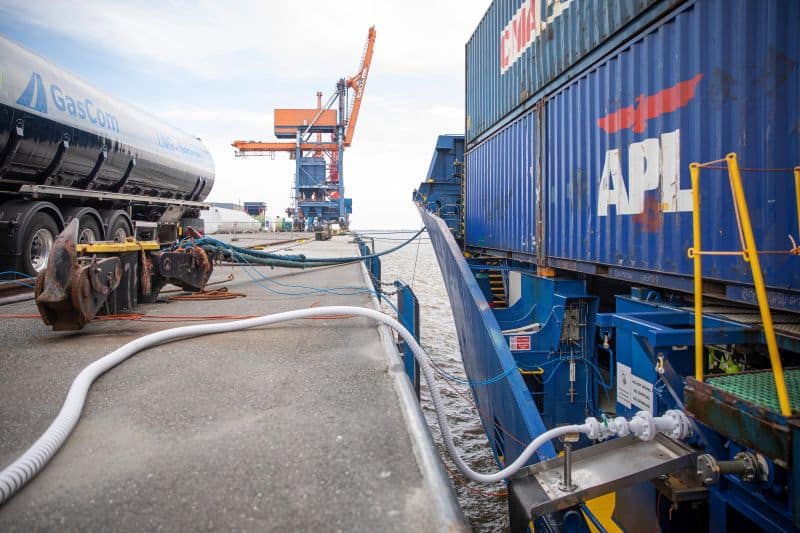
Further reductions in methane slip
SNG is considered a carbon-neutral fuel as its combustion releases only as much CO2 as captured during its production using power-to-X technology. However, just like LNG, SNG consists largely of methane (CH4) and, during operation, small unburned quantities of the gas can escape – so-called methane slip. Methane is considered a greenhouse gas that, when released unburned into the atmosphere, is 28 times more harmful to the climate than CO2. MAN already offers solutions for methane-slip-free operation in two-stroke engines. For four-stroke engines, the company is working on various solutions to further reduce the escape of methane from the combustion chamber.
Eefting added: “We have already been able to halve methane slip in our dual-fuel, four-stroke engines in recent years through internal engine measures, and we see further potential in the area of exhaust gas after-treatment. We are currently developing special oxidation catalysts with which we have been able to reduce methane slip by a further 70% in laboratory tests. Next year, we will test the catalyst on board a ship for the first time and expect to have a market-ready technology by 2025.”
Maritime Energy Transition
MAN Energy Solutions has been committed to a Maritime Energy Transition aimed at climate-neutral shipping for many years. From the company’s perspective, this requires the industry-wide and massive use of climate-neutral fuels as direct electrification of ocean-going shipping via batteries is not technically feasible. The development and conversion of the infrastructure and global fuel-supply chains required for this can only be successfully achieved in close cooperation between the shipping industry and political regulation, a scenario MAN Energy Solutions vigorously advocates for.
Reference: man-es.com
Disclaimer :
The information contained in this website is for general information purposes only. While we endeavour to keep the information up to date and correct, we make no representations or warranties of any kind, express or implied, about the completeness, accuracy, reliability, suitability or availability with respect to the website or the information, products, services, or related graphics contained on the website for any purpose. Any reliance you place on such information is therefore strictly at your own risk.
In no event will we be liable for any loss or damage including without limitation, indirect or consequential loss or damage, or any loss or damage whatsoever arising from loss of data or profits arising out of, or in connection with, the use of this website.
Disclaimer :
The information contained in this website is for general information purposes only. While we endeavour to keep the information up to date and correct, we make no representations or warranties of any kind, express or implied, about the completeness, accuracy, reliability, suitability or availability with respect to the website or the information, products, services, or related graphics contained on the website for any purpose. Any reliance you place on such information is therefore strictly at your own risk.
About Author
Marine Insight News Network is a premier source for up-to-date, comprehensive, and insightful coverage of the maritime industry. Dedicated to offering the latest news, trends, and analyses in shipping, marine technology, regulations, and global maritime affairs, Marine Insight News Network prides itself on delivering accurate, engaging, and relevant information.

About Author
Marine Insight News Network is a premier source for up-to-date, comprehensive, and insightful coverage of the maritime industry. Dedicated to offering the latest news, trends, and analyses in shipping, marine technology, regulations, and global maritime affairs, Marine Insight News Network prides itself on delivering accurate, engaging, and relevant information.
Do you have info to share with us ? Suggest a correction
- U.S Navy Fired $1 billion In Missiles To Counter Iran & Houthis In Middle East, Says Navy Secretary
- U.S Navy Warships Fire SM-3 Missiles For the First Time To Shoot Down Iranian Missiles
- Greece Becomes 1st European Nation To Ban Bottom Trawling In Marine Parks & Protected Areas
- Panama Canal Authority Increases Ship Booking Slots & Maximum Allowable Draft As Water Levels Improve
- World’s Largest Car Carriers Set to Be Powered By MAN ES Propulsion Package
- Howden Offers War Risk Cargo Insurance Covering Red Sea Ships Against Drone & Missile Attacks
Latest Shipping News Articles You Would Like:
Subscribe To Our Newsletters
By subscribing, you agree to our Privacy Policy and may receive occasional deal communications; you can unsubscribe anytime.
Web Stories





